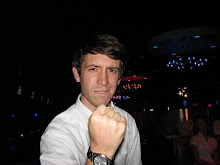Malcolm Gladwell's latest piece in the New Yorker combines references to (King) David, Rick Pitino, the value of a well-worked basketball press, Roger Craig, and Lawrence of Arabia, and yet somehow still remains compelling and thought-provoking throughout.
Insurgents, though, operate in real time. Lawrence hit the Turks, in that stretch in the spring of 1917, nearly every day, because he knew that the more he accelerated the pace of combat the more the war became a battle of endurance—and endurance battles favor the insurgent. "And it happened as the Philistine arose and was drawing near David that David hastened and ran out from the lines toward the Philistine," the Bible says. "And he reached his hand into the pouch and took from there a stone and slung it and struck the Philistine in his forehead." The second sentence—the slingshot part—is what made David famous.
But the first sentence matters just as much. David broke the rhythm of the encounter. He speeded it up. "The sudden astonishment when David sprints forward must have frozen Goliath, making him a better target," the poet and critic Robert Pinsky writes in "The Life of David." Pinsky calls David a "point guard ready to flick the basketball here or there." David pressed. That's what Davids do when they want to beat Goliaths.
"
How David Beats Goliath: When Underdogs Break the Rules" by Malcolm Gladwell.
The main argument of the piece is that Davids can often defeat Goliaths if the Davids realize that they must substitute sheer effort for a dearth of ability in order to close the gap that exists between themselves and Goliath. This argument is obviously not new to anyone who has seen Rudy, studied the American Revolution, or followed the rise of Microsoft.
What is particularly insightful about Gladwell's argument is that the substitution of effort for ability must be accompanied by a wise application of that effort. The underdog who chooses to put forth all of the effort in the world by continually attacking his opponent's area of strength will often be disappointed at best and destroyed at worst.
This is in stark contrast to the underdog who chooses to put forth all of the effort in the world, but rather than focusing on his opponent's strongholds, instead chooses to center that effort on the weaknesses of Goliath. Gladwell's best example of this point is that Lawrence of Arabia wisely choose not to fight the Turks in fortified cities and instead constantly harassed and harried the Turks at their weakest point, the long exposed rail-lines that connected Medina and Damascus.
I'm not sure where journalism is headed in the next 5, 10, or 20 years, but I have a feeling that there will always be room for this type of challenging, entertaining, and thought-provoking piece.
Labels: Malcolm Gladwell, The New Yorker
 I thank the sweet, sweet Lord that my geography teachers never used that descriptor the Korean Peninsula. It doesn't mean that my thoughts of Korea won't be tainted from this point of forward, but it does mean that I was able to avoid that mental trauma up until now.
I thank the sweet, sweet Lord that my geography teachers never used that descriptor the Korean Peninsula. It doesn't mean that my thoughts of Korea won't be tainted from this point of forward, but it does mean that I was able to avoid that mental trauma up until now.
















